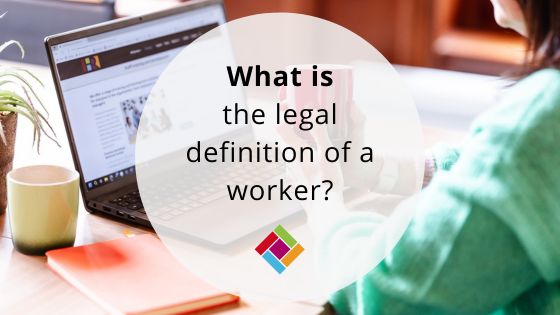
In 2021, the UK’s high court ruled that Uber drivers are classified as ‘workers’ in a historic case. Thirty-six drivers took Uber to court over Uber classifying their status as ‘self-employed’ and won; meaning they were entitled to the same rights as employees, such as holiday pay and the minimum wage. So what is the legal definition of a worker?
A person is generally legally classed as a ‘worker’ if:
- they have a contract, whether written or verbal, or other arrangement to do work or services personally for a reward;
- their reward is for money or a benefit in kind, for example the promise of a contract or future work;
- they only have a limited right to send someone else to do the work (subcontract);
- they have to turn up for work even if they don’t want to for the duration of a specific contract;
- their employer has to have work for them to do as long as the contract or arrangement lasts; and
- they aren’t doing the work as part of their own limited company in an arrangement where the ‘employer’ is actually a customer or client.
What does this look like in reality?
Workers can normally be identified by working in accordance with the following guidelines.
- they occasionally do work for a specific business;
- the business doesn’t have to offer them work and they don’t have to accept it – they only accept offers of work when they want to;
- their contract with the business uses terms like ‘casual’, ‘freelance’, ‘zero hours’, ‘as required’ or something similar;
- they had to agree with the business’s terms and conditions to get work – either verbally or in writing;
- they are under the supervision or control of a manager or director;
- they can’t send someone else to do their work; and
- the business provides materials, tools or equipment they need to do the work.
Worker status is sometimes seen as a “half-way house” between employee and self-employed status. Workers are entitled to fewer statutory rights than employees, but do have some key legal rights, as set out below.
What rights does a worker have?
Workers are entitled to the following basic rights:
- National Minimum Wage/National Living Wage
- A written statement of terms on the day the contract starts
- Paid annual leave
- If eligible, auto-enrolment on to a pension scheme
- An itemised pay slip on or before the day payment is made
- Rights under the Working Time Regulations 1998 to statutory rest breaks and a maximum 48 hour working week (unless the worker choose to opt out)
- Protection from discrimination or mistreatment following whistle-blowing
- Protection from unlawful deduction of wages
- Health and Safety Protection
Workers do not have the following rights or protections:
- minimum notice periods if their employment will be ending, for example if an employer is dismissing them;
- protection against unfair dismissal;
- the right to request flexible working;
- time off for emergencies; and
- statutory redundancy pay.
For support with staff management from our team of HR consultants, you can find out about how to work with Bespoke HR here.